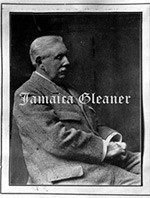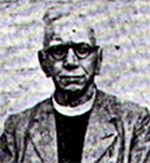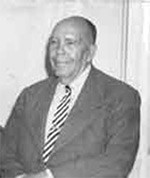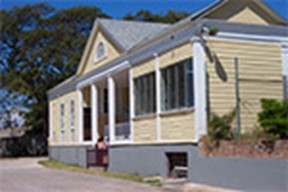History of Overseas Examinations Commission
Jamaican students first sat Cambridge Examinations in Jamaica on 17 December 1882 under the auspices of the Governors of the Institute of Jamaica. Boys wrote their examinations at the Collegiate School and girls at the Institute of Jamaica (IOJ). The Overseas Examinations Commission began as a voluntary organization in November 10, 1887 to conduct Cambridge Examinations for 47 candidates which was regarded as a large number back in 1887.
The OEC originated from the Cambridge Local Examinations Committee (CLEC), which was founded in that year as the Jamaican agent of the British-based University of Cambridge Local Examinations Syndicate (UCLES). As an agent of Cambridge, CLEC undertook the responsibility to ensure that schools that sat the Cambridge examinations were of a standard acceptable to Cambridge.
The Hon. Dr James Phillippo was the first Chairman of the Institute of Jamaica and he initiated the effort to introduce Cambridge Examinations in Jamaica. He was also the first Chairman of the Cambridge Local Examinations Committee (CLEC), which was established in 1887. The Secretary/Librarian of the IOJ, Mr H. Priest, was appointed and served as Secretary to the new Committee until 1889.

Frank Cundall, courtesy of The Gleaner Company Limited

Reverend E. Armon-Jones, Chairman, 1947-1950
In 1947 the Cambridge Local Examinations Committee (CLEC) dissolved itself and immediately reconstituted itself under Chairman Rev. E. Armon-Jones.
The brief Armon-Jones Chairmanship witnessed an effort to put the finances of the CLEC on a more secure footing; confronted the challenge of Independent Schools and Private Candidates and supported the efforts of Cambridge to “localize” syllabuses. The Government of Jamaica, without becoming deeply involved in administering the overseas examinations, facilitated the CLEC in various ways — including in 1946 granting exemption from Customs Duties for the importation of examination materials.

J.J. Mills, Chairman, 1951-1966
Mr J.J. Mills succeeded Rev. Armon-Jones who died in office in 1950. Mills served as Chairman of the CLEC from 1951 until his death in 1966. The Mills chairmanship (1951–1966) coincided with important political change in Jamaica and the Caribbean, including the federal experiment (1958–1961).
In 1951 the General Certificate of Education (GCE) ‘Ordinary’ and ‘Advanced’ level examinations were introduced in Jamaica replacing the Cambridge School Certificate and Higher School Certificate. The merger of the administration of Cambridge and London Examinations under a revised CLEC between 1957 and 1969 was therefore a significant institutional development. A discussion of the merger of Cambridge and London Examinations under the aegis of the CLEC between these years culminated in the restructuring of the CLEC into the Overseas Examinations Committee (OEC). The inaugural meeting of the OEC took place at 10a Caledonia Avenue on November 29, 1969. The OEC took over the responsibilities and the assets of the CLEC and the University of London Examinations Committee. The OEC would administer the following examinations:
- Cambridge Local
- London University
- Associated Examining Board
- City and Guilds
- Union of Lancashire and Cheshire Institutes
- Royal Society of Arts
- Pitman
The process of establishing the OEC had taken 12 years. The OEC officially became the institution primarily responsible for all overseas examinations conducted in Jamaica. On January 24, 1973 the Gleaner newspaper in Jamaica announced that the Caribbean Examinations Council was intended to replace school examination bodies in Britain, indeed, the CXC succeeded Cambridge as the main examining body in the Caribbean.
Following the death of J.J. Mills in 1966, E.A. Barrett who had been principal of Cornwall College and a member of the Cambridge Local Examinations Committee was unanimously voted in as the new Chairman.

First headquarters at Piccadilly Road
Three important changes took place under the Chairman Barrett era: The establishment of the OEC; the inauguration of the Caribbean Examinations Council examinations in 1979; and the purchase of permanent headquarters for the OEC. In 1977, the OEC purchased its own property at 2A Piccadilly Road, for a payment of $220,000, and signed a contract to remodel and repair the clubhouse of the St Andrew Lawn Tennis Association, previous owners of the property. Piccadilly Road has remained the headquarters of the Overseas Examinations Committee and Commission ever since.
As a committee of volunteers the CLEC freely chose its Chairman and its membership. Mr Barrett served as Chairman from 1966 until his retirement in 1983. Two issues emerged towards the end of his term as Chairman: the legal status of the OEC and the question of financing. Following his retirement, Mr. Barrett continued to be one of three Trustees of the organization, whose appointment was aimed at giving legal status and permanence to the committee previously made up of volunteers. The OEC’s assets were at this time vested in the three Trustees in 1983: E.A. Barrett, N.S. Jackson and E.H. Cousins.
The first female to chair the OEC (1983–1995), Ellorine Walker, a former principal of Merl Grove High School, would succeed Mr. Barrett. Coinciding with Ellorine Walker’s chairmanship was the expansion of the OEC. One by one, the three Trustees died before “legal action had been undertaken in respect of the Trust Deed”.
The legal status of the Overseas Examination Committee and the Board of Trustees was resolved definitively by 2005. The Overseas Examinations Commission Act of 2005 incorporated the old Overseas Examinations Committee and renamed it the Overseas Examinations Commission. The OEC continues to administer examinations for London and Cambridge but has largely been replaced by the Caribbean Secondary Education Certificate (CSEC) and Caribbean Advanced Proficiency Examination (CAPE). The then Minister of Education & Youth, The Hon. Maxine Henry-Wilson, named April 1, 2006, as the effective date of the Commission and this was published in the Jamaica Gazette. The Commissioners were named in February 2007 and the names published in the Jamaica Gazette Thursday, February 15, 2007. The establishment of the commission almost coincided with the opening of a new office building, also in 2007.
In 1998, there were changes in the administrative structure of the OEC following the retirement of the Executive Secretary, Phyllis Cargill, her deputy Beryl Urquhart, was appointed as the first Director of the Overseas Examinations Office. Dr Neville Ying succeeded Ms Walker, who resigned after 12 years as Chairman, in 1996. A Deputy Director, Hector Stephenson (former Principal of St George’s College), was appointed as of June 1998. Mr. Stephenson succeeded Mrs. Urquhart upon her retirement in 2010 and has been serving as the Commission’s Executive Director since.

The Overseas Examinations Commission has come a long way in its 135-year history. Its success over these many years has resulted, to a significant degree, on its ability to ride the tide of the times and adjust to changing situations, while ensuring its financial sustainability.
